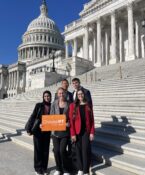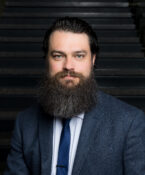Seed grants help research grow
Triple-negative breast cancer is often aggressive and difficult to treat, making the need for effective therapies all the more urgent.
With the help of a $25,000 UNT Health Science Center seed grant, Alakanada Basu, PhD, is laying the groundwork for just such a therapy that could one day improve the outlook for those with a disease that tends to strike younger, African American women.
Today there are no targeted therapies, and the treatments that are available are very toxic with serious side effects, said Dr. Basu, Professor of Molecular and Medical Genetics.
"Some patients don’t respond to therapy at all, or they respond and then relapse," she said.
Triple negative breast cancer tests negative for estrogen receptors, progesterone receptors and HER2, meaning the growth of the cancer is not supported by these hormones or HER2 receptors.
As a result, triple-negative breast cancer does not respond to hormonal therapy or therapies that target HER2 receptors. About 10 percent to 20 percent of breast cancers are found to be triple-negative.
Dr. Basu is one of 27 UNT Health Science Center researchers to be awarded a seed grant this academic year to support promising research at a time when financial resources are often in short supply. Seed grants totaling $584,336 have been awarded this year in an effort to facilitate the research careers of faculty members. Typically the grants are used to enhance competitiveness for larger government awards.
That’s exactly what Dr. Basu is hoping for. The seed grant has allowed her to collect data to support her hypothesis, which she can use to seek federal funding.
In the case of triple-negative breast cancer, the race is on to understand the disease at the basic science level so that therapies can be developed that would selectively kill cancer cells while leaving healthy cells unharmed.
Basu is investigating signaling patterns between cells to identify which pathways are potential targets for therapy. Targeting one pathway by itself might not be effective, but looking at them in combination with others might lead to new therapies, Dr. Basu said.
In the end, that could mean treating patients with the drugs to which they are most likely to respond.
"It’s not a one-size-fits-all approach," she said.





Social media